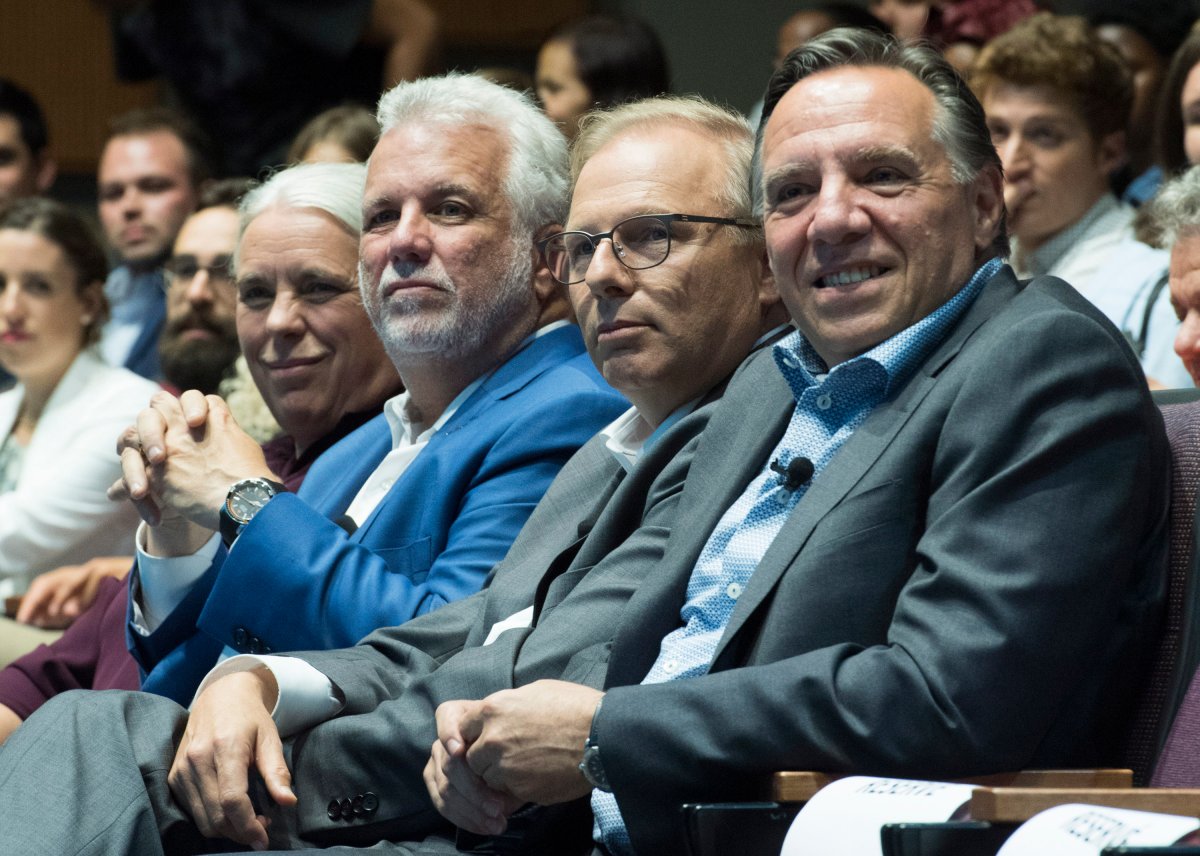May Chiu, a family and human rights lawyer, ran in a previous provincial election for Québec Solidaire, which bills itself as the most environmentalist, left-leaning and socially conscious of the four major political parties.

But in Quebec politics, labels can be confusing — and ironic — as Chiu discovered.
READ MORE: Parti Québécois rules out alliance with Coalition Avenir Québec
Chiu finished third in the Montreal riding of Outremont in 2008 and eventually quit the party — but not because she hadn’t won.
She left, in part, because of Québec Solidaire’s pledge to pass a law, if it takes power, that would prohibit hijab-clad Muslim women or turban-wearing Sikh men from holding certain jobs such as a judge or police officer.
Moreover, under certain circumstances, Québec Solidaire would go so far as to use Sec. 33 of the federal Charter of Rights and Freedoms — which allows governments to override certain rights granted under the legislation — to keep its law in force.
READ MORE: Québec Solidaire offers voters radical societal project
Paradoxically, this position comes from a political party whose 2017 convention was interrupted by a mini scandal after it was revealed the food table contained … Israeli hummus.
The offending spread, which came from a country that “persecutes Palestinians,” was promptly removed and given to charity, according to a Radio-Canada report.
Regardless of ideology, political parties in Quebec are under enormous pressure to take a stance on the so-called secular nature of the state.
Chiu says Québec Solidaire’s position is untenable for her.
“Economically, socially, environmentally, QS has the best platform according to my principles and values,” she said in an interview. “But I can’t vote for a party that says it will use (Sec. 33) on that issue.
“The problem is when you start to discriminate against one group, the floodgates are open to discriminate against any other group.”
Oddly enough, it’s the Quebec Liberals — the party of the status quo with strong ties to the business sector and that made severe cuts to education and health in order to balance the books and pay down debt — who are considered progressive on many issues.
Andre Gagné, a digital fellow at the Montreal Institute for Genocide and Human Rights Studies, calls the Liberals the most “progressive” when it comes to immigration, diversity, welcoming refugees and religious freedom — particularly in comparison to their biggest rivals, the Parti Québécois and Coalition Avenir Québec.
WATCH: Gabriel Nadeau-Dubois joins Global’s Laura Casella to talk about Québec Solidaire’s priorities in the upcoming election.

“There is an irony there,” said Gagné, who is also a Concordia University associate professor.
It was the Liberals who wanted to increase immigration levels to 60,000 newcomers a year from 50,000 and who planned to hold a conference on systemic racism in the province.
But as the election call approached, the party backed down on both proposals after intense criticism from the PQ and Coalition, who both say there is no systemic racism in Quebec.
‘Our position is not perfect’
The Liberals, who have been in power since 2003 except for a PQ minority government between 2012 and 2014, also appear to be the favourite party of people between 18 and 34.
A recent Leger poll conducted for the Montreal Gazette and Le Devoir indicated 35 per cent of young voters would have voted Liberal, compared with 26 per cent for the Coalition, 16 per cent for the PQ and 8 per cent for Québec Solidaire.
READ MORE: Poll shows Liberals leading Quebec youth vote
The support from the young can be explained by a variety of factors, Gagné said, such as the Liberals’ staunch support for federalism, as opposed to the PQ and Québec Solidaire, which are both sovereigntist.
But the Liberals’ positive stance on immigration, refugees and religious freedom is likely also a strong factor, he said.
Gabriel Nadeau-Dubois, a Québec Solidaire spokesman, said in an interview his party would only invoke Sec. 33 if Quebec’s appeals court upholds its future secularism law but the Supreme Court of Canada rejects it.
“Our position is not perfect,” Nadeau-Dubois said in an interview.
“But it has a great merit of being a compromise.”
He noted his party is the only one that has a hijab-wearing Muslim candidate in this election.
And while Chiu can’t support Québec Solidaire, she is actively fighting the Liberals in court over the party’s 2017 so-called “religious neutrality” law.
Chiu represents a women’s organization opposing Bill 62, which prohibits anyone from receiving or giving a public service with their face covered.
READ MORE: Quebec Solidaire candidate is first visually impaired woman to run for provincial politics
The courts have twice suspended the law’s application until it goes through judicial review because of the “irreparable harm” it would cause Muslim women.
While Chiu finds the Liberal law coercive, she believes the secularism laws proposed by the PQ, the Coalition or Québec Solidaire would be far worse.
READ MORE: Quebec political parties seek to woo parents, families as school year begins
The confusing and ironic state of Quebec politics makes her somewhat of a political orphan.
“(The Liberals’) economic policies hurt so many people — and most of all they hurt racialized minorities,” Chiu said.
“And speaking as a racialized minority, I don’t know where my vote (on Oct. 1) should go.”

Comments